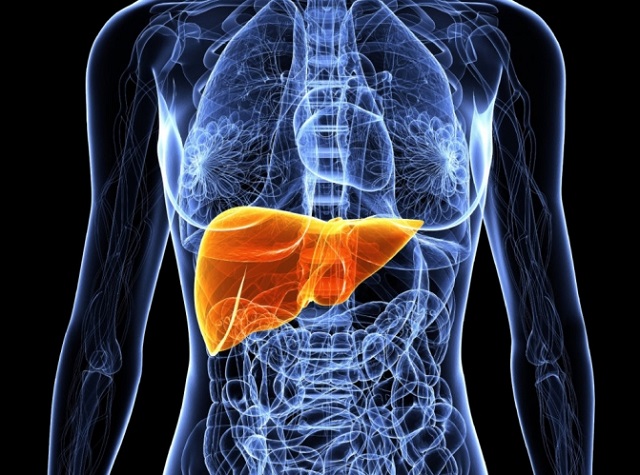
The Sunday News

Lee-Anne
LIVER cirrhosis is a condition that is becoming more and more prevalent in Africa mainly because of our lifestyle choices and habits. The liver is the largest solid organ in the body and it has the following important functions:
-Manufacturing blood proteins that aid in clotting, oxygen transport, and immune system function.
-Storing excess nutrients and returning some of the nutrients to the bloodstream.
-Manufacturing bile, a substance needed to help digest food.
-Helping the body store sugar (glucose) in the form of glycogen.
-Ridding the body of harmful substances in the bloodstream, including drugs and alcohol.
-Breaking down saturated fat and producing cholesterol .
By definition, liver cirrhosis is a slowly progressing disease in which healthy liver tissue is replaced with scar tissue, eventually preventing the liver from functioning properly. The scar tissue blocks the flow of blood through the liver and slows the processing of nutrients, hormones, drugs, and naturally produced toxins. It also slows the production of proteins and other substances made by the liver.
According to the National Institutes of Health, cirrhosis is the 12th leading cause of death by disease which points out the severity of the disease.
What causes cirrhosis of the liver?
It is important for me to highlight the causes of this deadly disease in order for us to prevent it. Hepatitis C and alcohol abuse are the most common causes of cirrhosis of the liver but anything that damages the liver can cause cirrhosis, including:
-Fatty liver associated with obesity
-Chronic viral infections of the liver (hepatitis types B, C, and D; Hepatitis D is extremely rare).
Although less likely, other causes of cirrhosis include reactions to prescription drugs, prolonged exposure to environmental toxins, or parasitic infections.
What are the symptoms of cirrhosis of the liver?
The symptoms of cirrhosis of the liver vary with the stage of the illness. In the beginning stages, there may not be any symptoms. As the disease worsens, symptoms may include:
-Loss of appetite
-Lack of energy (fatigue ), which may be debilitating
-Weight loss
-Bruises
-Yellowing of skin or the whites of eyes (jaundice)
-Itchy skin
-Fluid retention (edema ) and swelling in the ankles, legs, and abdomen (often an early sign)
-A brownish or orange tint to the urine
-Light-coloured stools
-Confusion, disorientation, personality changes
-Blood in the stool
-Fever
What complications are caused by cirrhosis of the liver?
Unfortunately this condition brings about more deadly effects on the body and these are:
-Kidney failure
-Reduced oxygen in the blood
-Diabetes
-Changes in blood counts
-Increased risk of infections
-Excessive bleeding and bruising
-Breast enlargement in men
-Premature menopause
Loss of muscle mass
Most of these complications can initially be treated with medicines or dietary changes. Once treatment for these complications becomes ineffective, a liver transplant is considered. Almost all of the complications can be cured by liver transplantation; however, in many circumstances, careful management can reduce the harmful effects of cirrhosis and delay or even prevent the need for a liver transplant .
What is the treatment for cirrhosis of the liver?
Although there is no cure for cirrhosis of the liver, there are treatments available that can stop or delay its progress, minimize the damage to liver cells, and reduce complications.
The treatment used depends on the cause of cirrhosis of the liver.
-For cirrhosis caused by alcohol abuse, the person must stop drinking alcohol to halt the progression of cirrhosis.
-If a person has hepatitis, the doctor may prescribe steroids or antiviral drugs to reduce liver cell injury.
Liver transplantation may be needed for some people with severe cirrhosis.
How can I prevent cirrhosis of the liver?
There are several ways to reduce your risk of developing cirrhosis of the liver:
-Don’t abuse alcohol. If you do drink alcohol, limit how much you drink and how often. Remember, it’s not only the heavy drinker who gets cirrhosis. If you drink more than two drinks a day, you are increasing your risk.
-Avoid high-risk sexual behaviour such as unprotected sexual contact with multiple partners.
-Be careful around synthetic chemicals, such as cleaning products and pesticides. If you come into contact with chemicals often, wear protective clothing and a facemask.
-Get vaccinated against hepatitis B .
-Eat a well-balanced, low-fat diet high in fruits and vegetables .
-Maintain a healthy weight, because excess body fat can cause fatty liver, which may lead to liver disease.
‘‘Take care of your busy body, you owe that to your family.’’
For more information about liver cirrhosis please email me on [email protected]
Or follow my blog www.healthpromotionbyleeanne.wordpress.com
Lee-Anne Hall
BSc Physiotherapy



